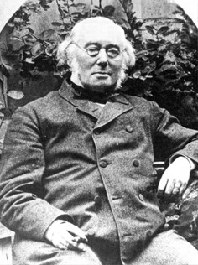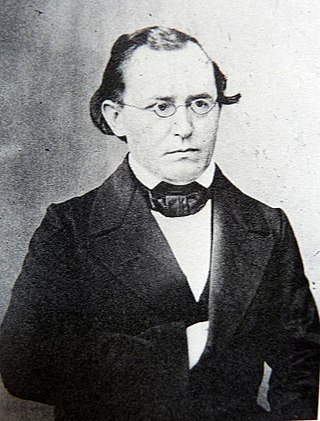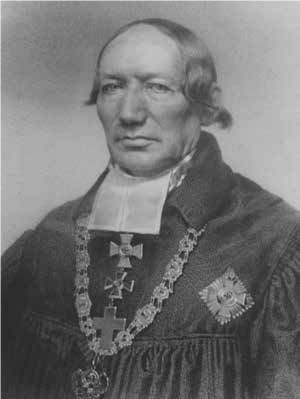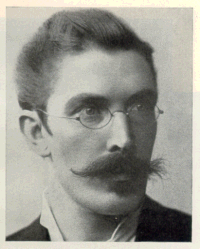Related Research Articles

Johann Salomo Semler was a German church historian, biblical commentator, and critic of ecclesiastical documents and of the history of dogmas. He is sometimes known as "the father of German rationalism".

Albrecht Benjamin Ritschl was a German Protestant theologian.

Albrecht is a given name or surname of German origin and may refer to:
Liberal Christianity, also known as liberal theology and historically as Christian Modernism, is a movement that interprets Christian teaching by taking into consideration modern knowledge, science and ethics. It emphasizes the importance of reason and experience over doctrinal authority. Liberal Christians view their theology as an alternative to both atheistic rationalism and theologies based on traditional interpretations of external authority, such as the Bible or sacred tradition. It is thus a deviation from both the historic orthodox church and the Historical Jesus, as Biblical scholar and adherent EP Sanders freely acknowledges.
Ritschl is a surname. Notable people with the surname include:

Friedrich Harms was a German realist philosopher, much influenced by Fichte.

Friedrich Wilhelm Ritschl was a German scholar best known for his studies of Plautus.
Otto Karl Albrecht Ritschl was a German theologian, the son of Albrecht Ritschl.

Richard Adelbert Lipsius was a German Protestant theologian.

Philip Hefner was an American theologian. He was professor emeritus of systematic theology at the Lutheran School of Theology at Chicago.

Franz Hermann Reinhold von Frank was a German theologian born in Altenburg. He was an important figure in the "Erlangen School" of the German Neo-Lutheranism movement, and a specialist in theological dogmatics.

Akademisches Kunstmuseum is an art museum in Bonn, Germany. It is one of the oldest museums in Bonn and houses the antique collection of the University of Bonn with more than 2,700 plaster casts of antique statues and reliefs, and over 25,000 originals. It is located in a neoclassical building at the southern end of the Hofgarten, near the Electoral Palace. During the renovation of the historic building, the museum can currently be visited at Römerstraße 164 in 53117 Bonn.

The Albert Order was created on 31 December 1850 by King Frederick Augustus II of Saxony to commemorate Albert III, Duke of Saxony. It was to be awarded to anyone who had served the state well, for civil virtue, science and art.

Jonathan Lee Draper is an American Anglican priest, theologian, and academic. Since 2017, he has been the general secretary of Modern Church. From 2012 to 2017, he was the dean of Exeter, at Exeter Cathedral in the Church of England Diocese of Exeter.

Ernst Constantin Ranke was a German Protestant theologian; since 1850, a professor of church history. He was the brother of historian Leopold von Ranke (1795–1886), theologian Friedrich Heinrich Ranke (1798–1876) and philologist Karl Ferdinand Ranke (1802–1876).

Georg Carl Benjamin Ritschl was a German evangelist theologian, bishop and composer in Pomerania.

Julius Wilhelm Martin Kaftan was a German Protestant theologian.

Friedrich Loofs was a German theologian and church historian best remembered for his studies involving the history of dogma.
Carl Stange was a German Protestant theologian and philosopher. In his work, he mainly dealt with issues of ethics and the philosophy of religion.
The Göttingen Faculty of Theology is the divinity school at the University of Göttingen, officially denominated the "United Theological Departments" but commonly referred to as the "Theological Faculty" . It was instituted at the foundation of the University, in 1737, along with the three other original faculties of Law, Medicine, and Philosophy. Over the centuries, the Göttingen Faculty of Theology has been home to many influential scholars and movements, including the rise of historical criticism, Ritschlianism, the History of Religions School, and Dialectical Theology. Its members were also involved in the Göttingen school of history.